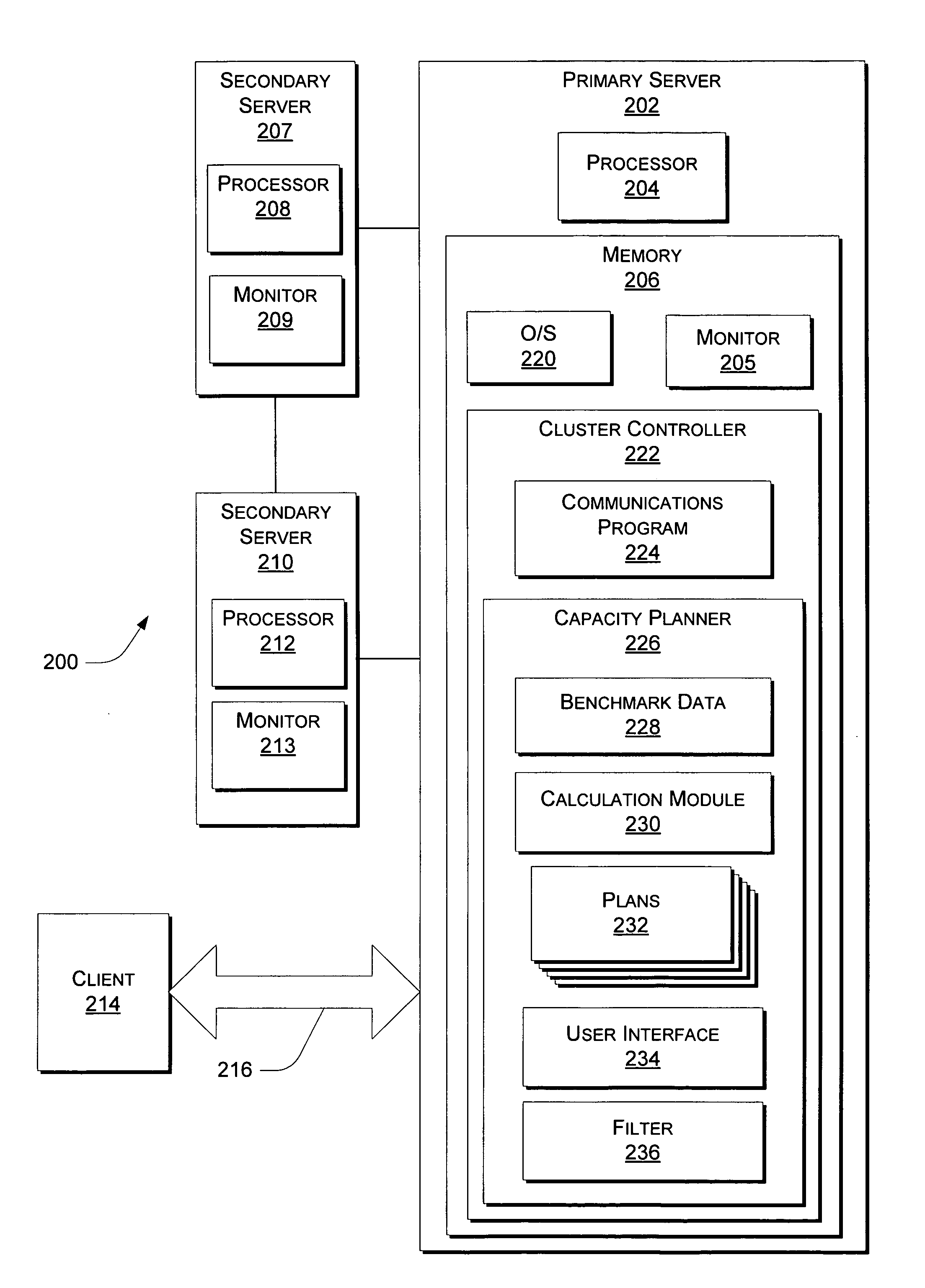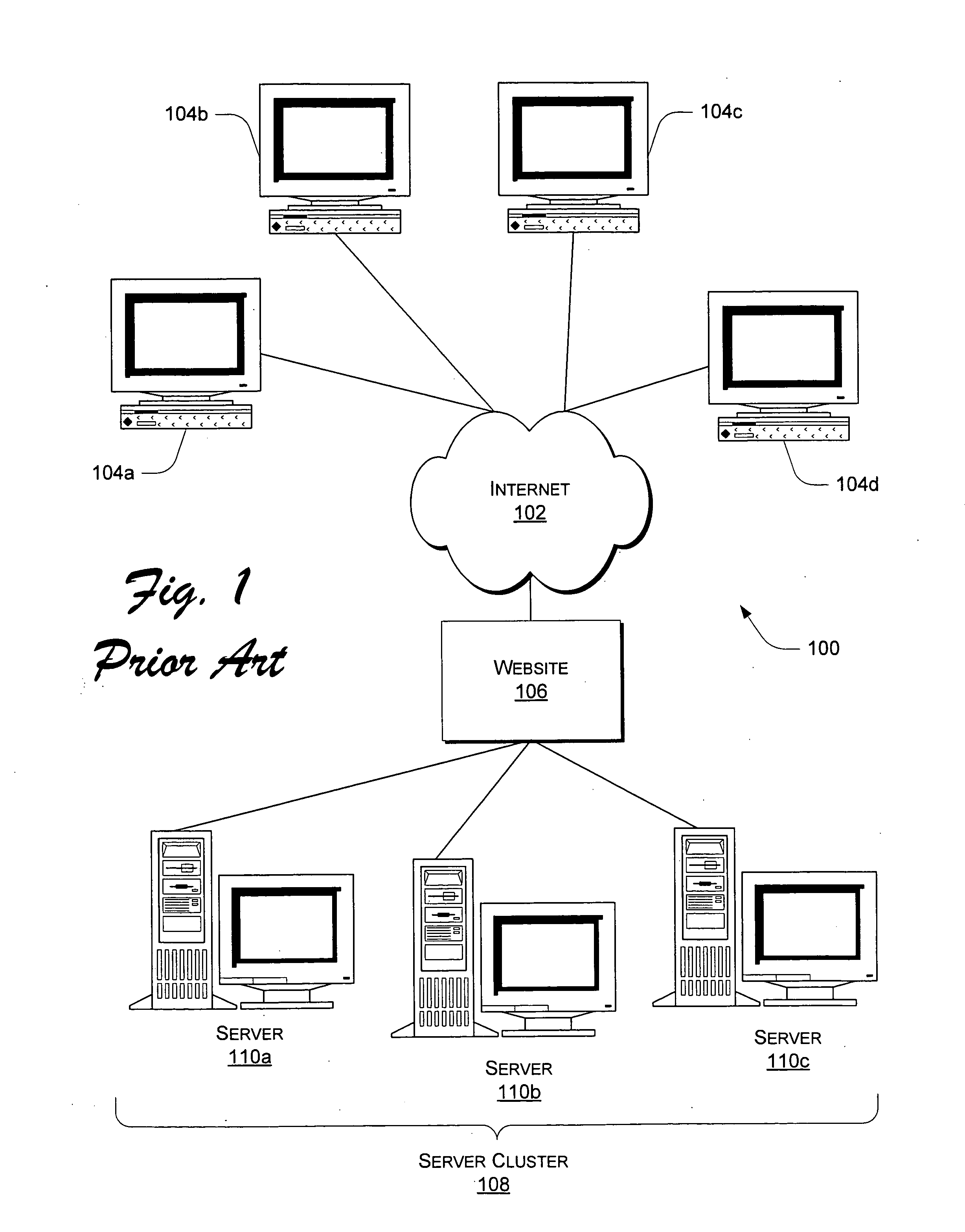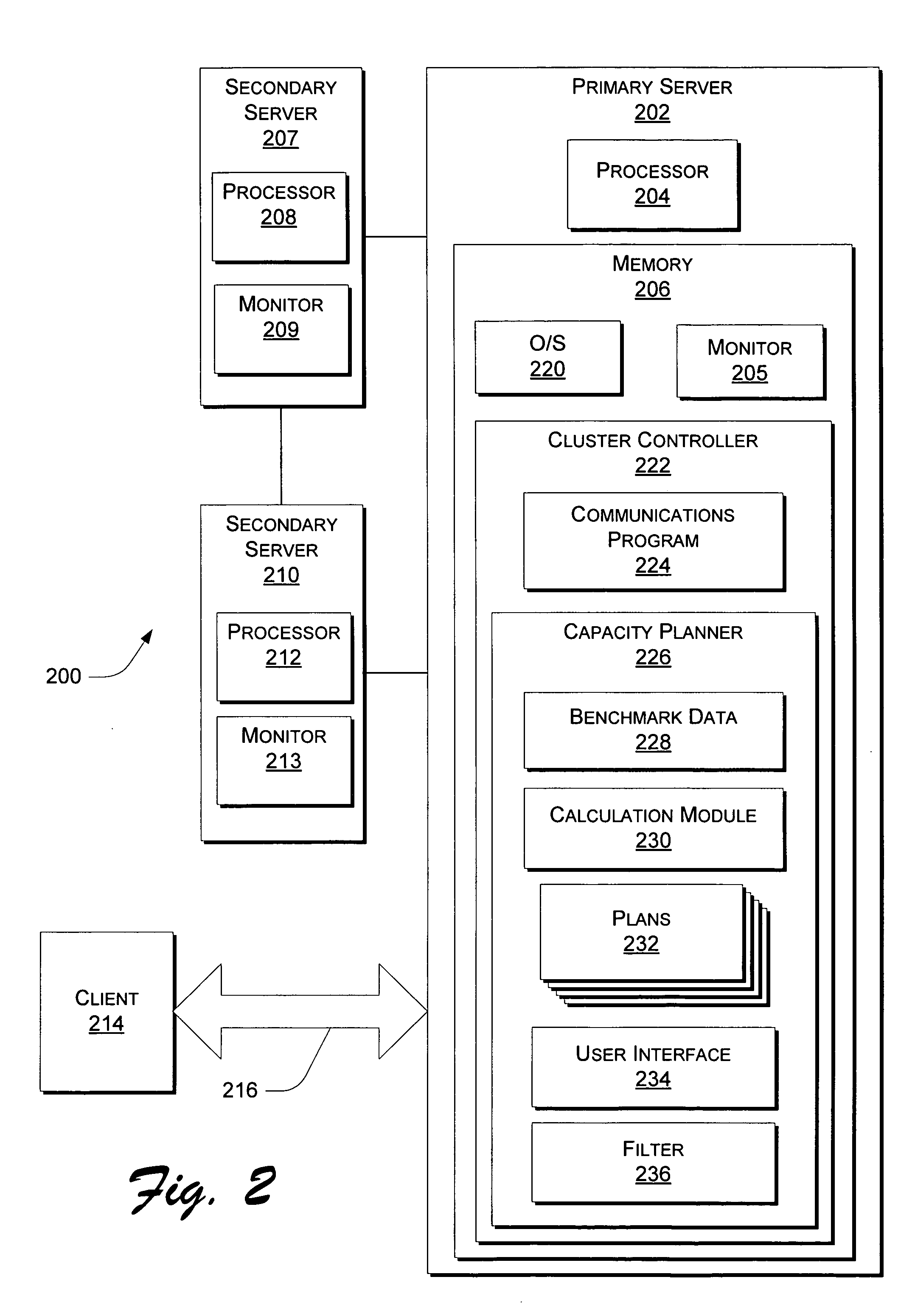Capacity planning for server resources
a server resource and capacity planning technology, applied in the field of server systems, can solve the problems of customers taking their business elsewhere, solid companies with millions of customers can quickly decline in popularity, and the company's financial damage, and achieve the effect of accurate results and adequate handling of load
- Summary
- Abstract
- Description
- Claims
- Application Information
AI Technical Summary
Benefits of technology
Problems solved by technology
Method used
Image
Examples
Embodiment Construction
FIG. 1 shows a typical Internet-based server-client system 100. The system 100 includes several clients 104a, 104b, 104c, 104d connected to the Internet 102. A website 106 runs on a server cluster 108 comprised of three servers 110a, 11b, 110c. Although the server-client system 100 is shown operating within an Internet website context, it is noted that the server-client system may operate in any server-client network context, such as a local area network (LAN) or a wide area network (WAN).
FIG. 2 depicts a server cluster 200 in accordance with the described implementations. The server cluster 200 comprises a primary server 202 having a processor 204 and a monitor 205 resident in memory 206, a first secondary server 207 having a processor 208 and a monitor 209, and a second secondary server 210 having a processor 212 and a monitor 213. The monitors are software applications that collect server parameter values while the server cluster 200 is in operation. It is noted, however, that th...
PUM
 Login to View More
Login to View More Abstract
Description
Claims
Application Information
 Login to View More
Login to View More - R&D
- Intellectual Property
- Life Sciences
- Materials
- Tech Scout
- Unparalleled Data Quality
- Higher Quality Content
- 60% Fewer Hallucinations
Browse by: Latest US Patents, China's latest patents, Technical Efficacy Thesaurus, Application Domain, Technology Topic, Popular Technical Reports.
© 2025 PatSnap. All rights reserved.Legal|Privacy policy|Modern Slavery Act Transparency Statement|Sitemap|About US| Contact US: help@patsnap.com



